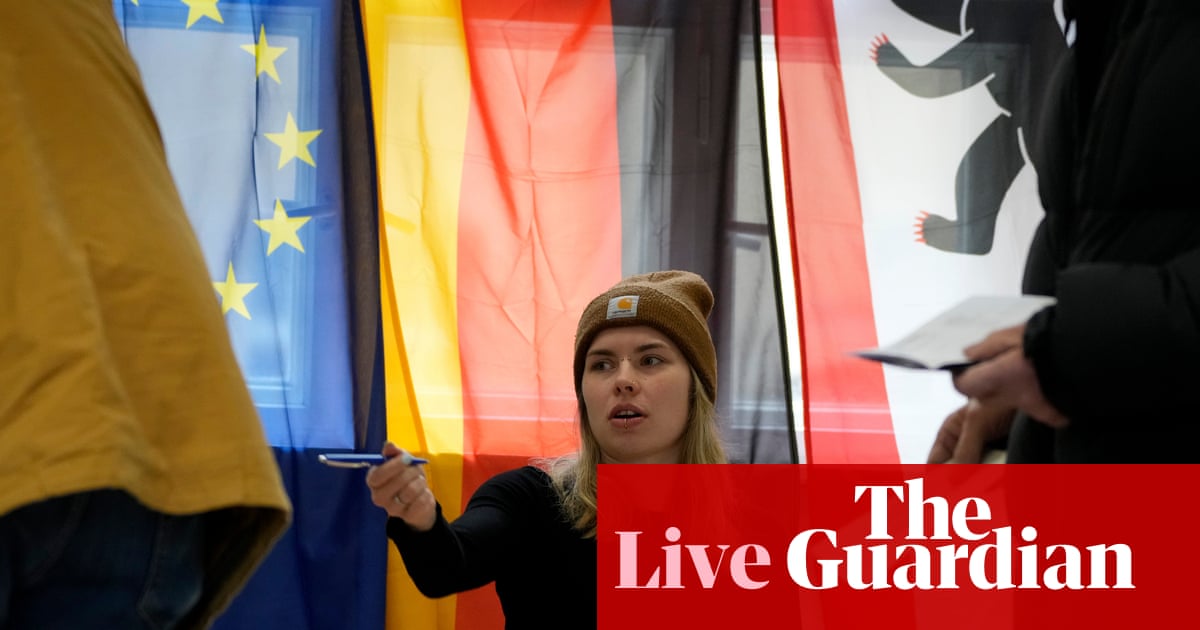It is a historic result for the Alternative for Germany party (AfD): just 12 years after the far-right party was founded, it has become the second largest political force in Germany.
With around 20% of the vote, it almost doubled its result from the last German election in 2021.
In eastern Germany, it has even become the strongest political force.
On election night, the AfD lead candidate Alice Weidel stressed again that her party is willing to enter into a coalition with the winning center-right alliance of the Christian Democratic Union (CDU) and its Bavarian sister party, the Christian Social Union (CSU).
At the same time, she lashed out at the CDU’s leader and likely next chancellor Friedrich Merz.
In reference to Merz’s promise made several years ago to halve the AfD’s vote share, Weidel told her supporters: “They wanted to halve us, but the opposite has happened!”
The AfD had managed to shape political discourse during the election campaign in Germany with its anti-immigration rhetoric, calling for Germany’s borders to be closed to refugees and asylum seekers.
Support from Musk and Vance
US billionaire and Trump confidant Elon Musk made the headlines in Germany during the election campaign when he actively supported the AfD. He was joined by US Vice President JD Vance, who also came out in support of the party.
The AfD is classified by the German security authorities as partially far-right extremist, with some of its chapters and party members under observation by the domestic intelligence agency.
This classification was prompted by numerous statements by AfD party officials, who, for example , question whether Germans with an immigration background should enjoy equal rights.
Several AfD officials have also come under scrutiny for using banned slogans and symbols from the Nazi era.
One of the party’s leading figures, the Thuringian AfD state chairperson Björn Höcke, was convicted twice in 2024 for using a banned slogan of Hitler’s paramilitary Sturmabteilung, SA.
In the weeks leading up to the general election, hundreds of thousands of people in Germany protested against the AfD. The party’s rise was seen as a danger for democracy and for migrants in the country.
AfD still treated as pariah
Despite its election success, the AfD’s result falls short of the party’s own expectations. Many members had secretly hoped to end up neck-and-neck with the CDU or even come in first.
The AfD election night party was a bit of a muted affair despite their election gains.
There are no new options for the AfD.
In a post-election TV debate with the main parties’ top candidates, Merz repeated his rejection of the AfD as a potential coalition parther.
“You can hold out your hand as much as you like, we will not be pursuing the wrong policies for this country,” he said.
Merz cited differing on foreign and security policy as the main reason for rejecting cooperation with the AfD.
The far-right party is calling for Germany to leave the EU, a return to a national currency and an end to military support for Ukraine.
Addressing Weidel directly, Merz said: “You want the opposite of what we want and that is why there will be no cooperation.”
Alice Weidel has her eyes set on the future: She has already indicated her availability to be her party’s candidate for chancellor at the next election in 2029.
“We will overtake the CDU/CSU. And then we will get a mandate to govern,” Weidel declared on the party’s own TV channel.
This article was originally written in German.
While you’re here: Every Tuesday, DW editors round up what is happening in German politics and society. You can sign up here for the weekly email newsletter Berlin Briefing.
Article by:Source:














